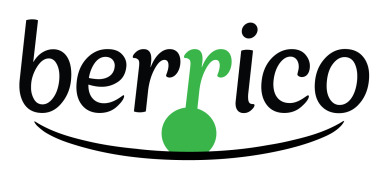News
Hybrid drinks add sparkle to a struggling beverage market
21 Oct 2019Consumers love to try new beverages, and a recent trend aims to straddle categories with drinks like tea lattes, carbonated juices, and fruit smoothies with plant milk.
Perhaps unsurprisingly, Coca-Cola is a leader in the hybrid beverage area. In March 2019, it released a smoothie-kombucha drink in the United States (Smoobucha), and its portfolio also includes more established hybrids, like Vitaminwater and Core Power, a dairy-based range of sports recovery drinks. PepsiCo has released its own hybrid beverages, including an oat-based breakfast drink under its Quaker brand in Latin America, and Tropolis, a squeezable liquid fruit drink/snack for kids in the United States.

According to market research organisation Mintel, about two-thirds of consumers have tried a hybrid beverage, the most popular being nutrient-enriched water and carbonated juice. But beverage companies have been exploring many different options in an effort to add some fizz to a struggling market. Sales of carbonated soft drinks, juice and milk are all stagnating or in decline, so manufacturers are looking to boost these categories with trendy ingredients, including chia seeds, cold brewed coffee, pre- and probiotics and matcha green tea.
Ingredients companies are already poised with portfolios of such ingredients, many of which are used in natural energy drinks that cross categories with various botanicals, electrolytes or other functional ingredients. Naturex, for instance, provides caffeine-free ingredients like maca root, ginger and ginseng for use in energy drinks, and Dutch supplier Berrico is among those providing goji berries in juice form or extracts, another popular ingredient for manufacturers seeking natural options.
Energy drinks represent just 1% of soft drink sales, according to trade association Energy Drinks Europe, but could be an interesting niche for hybrid drinks, especially as consumers increasingly are seeking out natural, ‘clean’ energy-boosting beverages free from synthetic caffeine and sugar. Natural ingredients, juices, coffee and tea could be promising starting points for new hybrid drinks. In a 2015 survey, 41% of German consumers said they would pay more for drinks made with only natural energy boosters, and market research from Mintel suggests that a majority of consumers across Europe would like to see energy drinks made with natural colours and flavours.
Meanwhile, beverage companies have taken note of the trend toward plant-based dairy alternatives, and are looking for ways to capitalise on that trend beyond plain and flavoured milks. Starbucks is among the big names to have created a plant milk hybrid drink, with a coffee-smoothie mash-up launched in the United States in 2018, based on either coconut or almond milk with added plant proteins and cold brew coffee.
With declining juice sales in Europe and elsewhere, hybrid juice drinks could breathe new life into the category. They are the biggest segment of the hybrid beverage sales, accounting for 47% of the market, according to Mintel. Antioxidants, electrolytes, protein and energy-boosting ingredients are among the most popular additions, especially among younger consumers who are seeking healthier options with less sugar and fewer artificial ingredients than traditional soft drinks.
Related news
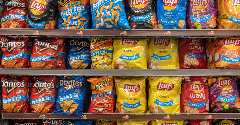
PepsiCo formulates ‘naked’ Cheetos and Doritos products
31 Dec 2025
US food giant PepsiCo has launched its Simply NKD range, a move it says reimagines its popular products with new formulations free from artificial flavours, dyes, and colours.
Read more
Debate over ban on ‘meaty’ names for plant-based products reaches stalemate
26 Dec 2025
The debate over a ban on plant-based products using “meaty” terms has reached a stalemate, leaving manufacturers in limbo and still facing overhauls to their marketing and packaging.
Read more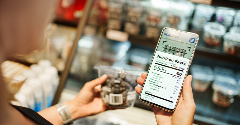
Has ‘clean’ had its day?
22 Dec 2025
Wielding clean-label positioning and fortification as marketing levers is a dangerous strategy, and brands would be better off explaining the hows and whys of the ingredients in their products, say experts.
Read more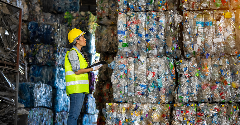
Pioneers of circular plastic packaging push for new policies
18 Dec 2025
Some of the world’s largest food and drink companies have grown frustrated at investing in circular packaging systems, as the majority “wait on the sidelines”.
Read more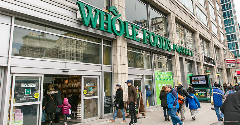
Whole Foods Market forecasts fibre frenzy for 2026
11 Dec 2025
Whole Foods Market has released its top 2026 trends, predicting that a fibre frenzy will take place next year as health-conscious consumers seek out nutritious, filling options.
Read more
Sorghum emerges as better-for-you hero ingredient
9 Dec 2025
With the launch of Novak Djokovic’s sorghum-based brand, the grain’s popularity in the better-for-you snacking sphere is on the rise, thanks to its nutritional and sensory properties.
Read more
Innovation promise in 'maturing' plant-based dairy alternatives market
8 Dec 2025
Plant-based dairy is a maturing market that still faces significant hurdles around taste, functionality, nutrition, and price, but industry is innovating fast, according to experts speaking at Fi Europe.
Read more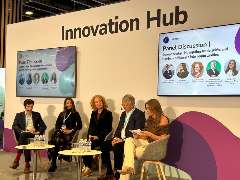
Turning global trade challenges into opportunities
4 Dec 2025
While our food innovation ecosystem is in a healthy place, certain barriers persist. A panel of experts at Fi Europe shared their ideas and strategies for overcoming these, to fully unleash Europe’s potential.
Read more
Celebrating the winners of the Fi Europe Innovation Awards 2025
3 Dec 2025
Food industry stakeholders celebrated as the winners of the Fi Europe Innovation Awards were announced at a ceremony in Paris.
Read more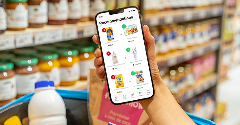
Yuka’s food scanning app helps consumers make healthier choices
2 Dec 2025
Global food scanning app Yuka helps consumers understand the content of their shopping baskets and shapes producers’ reformulation plans.
Read more
